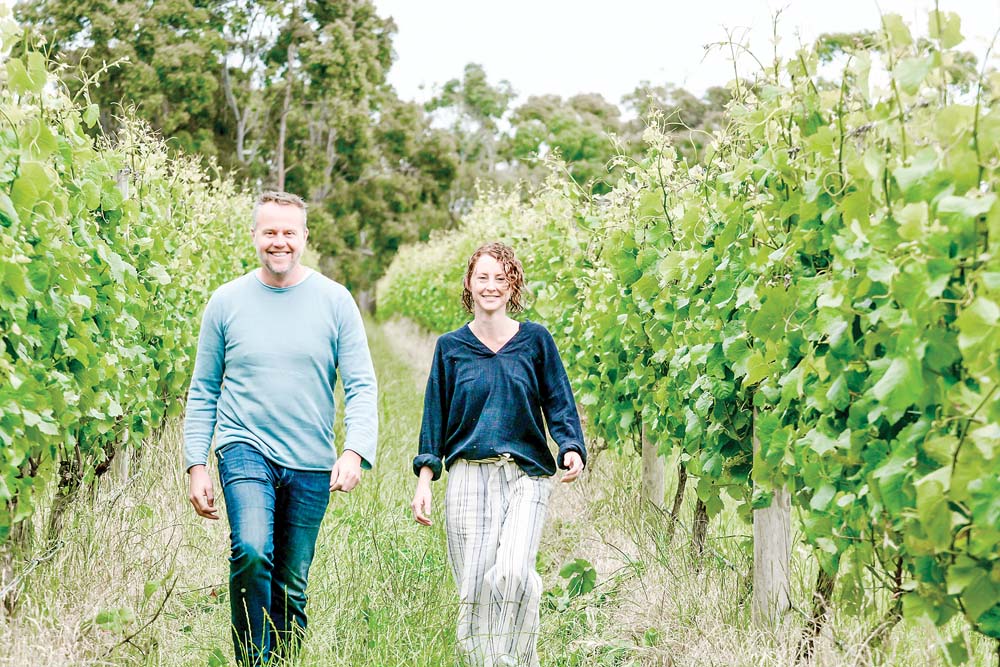
CRITTENDEN Estate in Dromana has won international recognition for its efforts to achieve sustainability in making wines.
The estate has won the 2020 BRIT/FIVS international winegrowing competition in the wake of a decision more than a decade ago to stop using chemicals.
Estate manager Rollo Crittenden said soil fertility at the Harrisons Road vineyard dropped noticeably about 12 years ago following 25 years’ use of herbicides, pesticides and fungicides.
Chemical residues had made the soil “chalky” and lacking in nutrients, which led to vines being “not as healthy as they could be”.
The decision to adopt other ways of improving the soil and crop has now culminated in winning the BRIT/FIVS competition, jointly run by the Botanical Research Institute of Texas and FIVS, a Paris-based international federation of sustainability-minded wine organisations.
The award was based on the winery’s programs addressing the three elements of sustainability – environmental, economic, and social – as well as its wine’s flavour.
The award recognised the quality of the estate’s 2017 Cri de Coeur pinot noir, submitted as proof of the success of Crittenden Estate’s commitment and innovation in sustainable winemaking.
“The combination of sustainable programs with the family’s love of the land has produced a wine that is truly outstanding,” BRIT’s president and executive director, Dr Ed Schneider said.
Nine finalists were chosen for the top award and runners up included South Australia’s Henschke Wines, Santa Rosa California’s Jackson Family Wines and Portugal’s Herdade dos Grous.
Wineries from Chile, Portugal and the United States received medals for their “ground-to-glass” sustainability programs and Jackson Family Wines received a platinum multi-brand sustainable winegrowing award.
Rollo Crittenden said the move to make Crittenden Estate “regenerative” involved producing compost on site and inter-row cropping – planting peas, oats and rye grass between the rows of vines.
“The root systems of these plants have a beneficial fungus that spreads to the root systems of the vines,” he said.
“There was a gradual, but noticeable, increase in the health of our vines.
“We have healthier, disease resistant vines from creating a healthier environment.”
The fungus spread by the inter-vine plantings helps the vines combat mildew in their canopies.
Crittenden says the estate is “not at the finish line [of sustainability] by any means”.
“We’re trying to understand the science and implementing a regenerative system throughout our business.”
The estate uses recycled water from the pipeline that runs close to the property from its source at the eastern treatment plant in Bangholme to an ocean outfall at Gunnamatta.
Bees from two beehives on the property to pollinate “desirable fruiting trees” and solar panels have led to a 60 per cent reduction in energy costs.
Rollo Crittenden’s father Garry planted the estate’s first vines in 1982. That two-hectare vineyard more than doubled the amount of land planted with grapevines in the area.
While still involved with the estate, Garry Crittenden has handed control to his son Rollo and daughter Zoe, who have continued his passion for exploring the possibilities of introducing new grape varietals.
Garry is recognised of being the first Australian winemaker to make commercial quantities of such Italian wines as barbera, nebbilio, docetto and sangiovese and his son and daughter have continued that pioneering tradition by introducing some Spanish grape varieties.
Garry Crittenden was inducted as a Melbourne Food and Wine Festival “legend” in 2012 and Rollo was in 2010 named Australian Young Gun of Wine.
Rollo Crittenden said winning the BRIT/FIVS award (which he’ll go to the United States to collect it in January) was “humbling … given the calibre of our fellow entrants”.
First published in the Southern Peninsula News – 10 December 2019